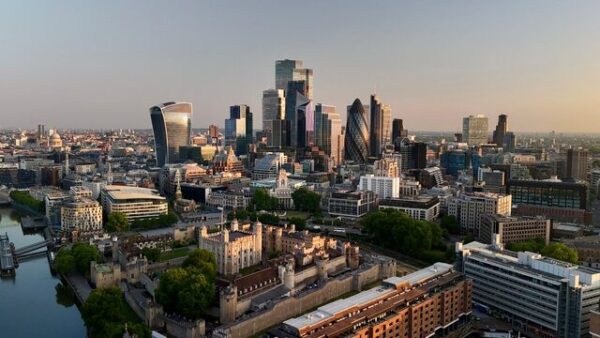News
IMF Raises UK’s 2025 Growth Forecast but Warns of Persistently High Inflation

The International Monetary Fund (IMF) has upgraded its growth forecast for the UK this year but lowered it for 2026, warning that Britain is likely to record the highest inflation rate among major advanced economies in both years.
UK Finance Minister Rachel Reeves and Bank of England Governor Andrew Bailey are attending the IMF’s annual meetings in Washington this week, where global policymakers are discussing how the world economy is adjusting to President Donald Trump’s new tariffs.
The IMF now expects the UK economy to grow by 1.3% this year and next — a 0.1 percentage point increase for 2025 compared to its July projections, but a 0.1 point downgrade for 2026.
The Bank of England’s August forecast showed similar expectations. Reacting to Tuesday’s update, Reeves said, “This marks the IMF’s second consecutive upgrade to our growth forecast this year. But I know this is only the beginning. Many people still feel our economy is stuck.”
The IMF’s revised outlook for the UK came as part of its broader update on global projections, which overall suggest that the impact of the steep new U.S. tariffs on advanced economies will be somewhat smaller than initially feared.
Britain’s growth rate is expected to be the second-fastest among G7 economies this year and the third-fastest in 2026, behind the United States and Canada.
The IMF said the upward revision for 2025 reflected stronger-than-expected growth in the first half of the year. However, its forecast for 2025 and 2026 combined remains 0.4 percentage points lower than the estimate published in October 2024, before Trump’s election victory.
Much of the UK’s recent economic expansion, the IMF noted, has been driven by historically high levels of immigration.
On a per capita basis — a better indicator of living standards — UK GDP is expected to rise by just 0.4% this year and 0.5% in 2026, the weakest among the G7 nations, though roughly in line with the country’s long-term average before the 2016 Brexit referendum.
The IMF projects UK consumer price inflation to average 3.4% this year and 2.5% next year — both the highest among G7 economies and an increase from its April estimates.
Persistently high inflation is limiting the Bank of England’s scope to cut interest rates and has made the cost of new government borrowing the highest in the G7.
The IMF attributed the elevated inflation partly to one-off rises in regulated prices and said it expected the pressures to ease as the labour market cools and wage growth slows. Inflation, it predicted, should return to the Bank of England’s 2% target by late 2026 — a few months earlier than the central bank itself anticipates.
The Fund also expects the UK’s unemployment rate to remain at 4.7% this year and next — the highest level in four years.
